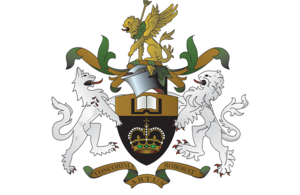David Wood introduces the Government Geography Profession
Two and a half years ago a group of committed and passionate geographers – the Central Government Geographers Group chaired by Jon Pickstone – worked with the Cabinet Office and the Government Science and Engineering profession (GSE) to establish geography as a new sub-profession within GSE.
I was appointed in 2018 as the first head of the geography profession to establish and grow the profession within GSE with a vision for a high profile, proud and effective profession that attracts fresh talent and has a secure place at the heart of government decision making.
It’s been a busy couple of years, during which time we’ve grown from a standing start to over 1,200 members across the public sector and put in place a number of initiatives to support our members, celebrated and promoted the importance of geography in the public sector and undertaken outreach activities to inspire the next generation of geographers – find out more at our new website.
Today, Sir Ian Diamond, Head of the Analysis Function in Government (and UK’s National Statistician) and Sir Patrick Vallance, Government Head of the Science and Engineering Profession (and Government’s Chief Scientific Advisor) made an announcement on the future of the Analysis Function in Government, GSE and the geography profession. Geography is a crucial part of the multi-disciplinary approach we will need to take within the Analysis Function to tackle the big issues faced by society. To support this, I’m very pleased to say that the Government Geography Profession will become a standalone profession within the Analysis Function and based at Cabinet Office with the Geospatial Commission.
You can find out more about the Analysis Function and its vision to integrate analysis into decision making and delivery to help improve outcomes and the Geospatial Commission and its strategic goal to drive a demonstrable shift in the UK’s geospatial capability through improved skills, resources, and better awareness, understanding of the geospatial sector and its value.
Of course, we will continue to be an inclusive and welcoming profession and will continue to support all those in the public sector who consider themselves geographers, recognising that whilst a lot us clearly align to the Analysis Function, some of us are in wider roles across the public sector.
But this is just the start, there’s a lot more that we want to do as a profession to support our members, set standards and work with other professions to embed geography at the heart of government decision making.
I would like to thank all those who have joined the profession and worked with us to help us realise our vision, including all those in GSE who we will continue to work with, and I look forward with the rest of the geography leadership team to leading us into the next stage of our journey.
If you are a civil, crown or public servant, and a geographer find out more about our benefits and how to join us (answer ‘Geography’ to question 11).
If you’re not a civil, crown or public servant, but would be interested in a role within one of our organisations and becoming part of the Government Geography Profession, please see our jobs in government page for more information.

